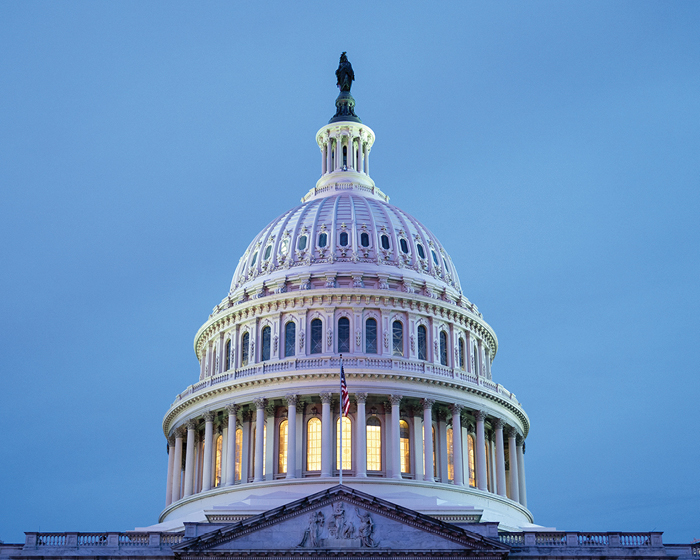Key Takeaways
- Sen. Chuck Grassley is seeking to block three U.S. Treasury Department nominees over concerns about the OBBB’s energy credit rollback.
- The dispute concerns the “beginning of construction” definitions that Trump has vowed to strictly enforce.
- The definition could be crucial for projects hoping to use credits for wind and solar energy.
- Trump is replacing IRS Commissioner Billy Long less than two months into his tenure.
- Trump's embrace of tariffs moves away from Reagan's legacy.
Sen. Chuck Grassley last week escalated his confrontation with the Trump administration over implementation of the One Big Beautiful Bill Act--specifically, on the rollback of wind and solar energy credits. On August 1, Sen. Grassley, apparently undeterred by President Trump's angry messages against him on social media, announced a "hold" on three nominations for the U.S. Treasury Department, saying he'll move to block their nominations unless the administration provides assurances they'll "follow the law and Congressional intent" on the OBBB.
And he's got some backup. According to reports, Sen. John Curtis, R-Utah, has joined Grassley in objecting to the nominees. Both senators have said the credits are crucial for clean energy projects in their states.
A hold--in essence, an informal filibuster--isn't necessarily enough to prevent a nominee from being confirmed in the Senate. But it can make it much more difficult, especially if the objecting senator is a member of the president's own party.
The dispute is over language in the OBBB that may seem like a small technicality, but could prove hugely important for billions of dollars in project funding.
Grassley’s two statements in the Congressional Record follow Trump’s July 7 executive order promising to end "market distorting subsidies for unreliable, foreign controlled energy sources." It singles out the “beginning of construction” definition–how many of the new expiration dates for the energy credits will be enforced–and calls for Treasury to ensure that they are not circumvented, including “by restricting the use of broad safe harbors unless a substantial portion of a subject facility has been built.”
Those safe harbors could include the 5% safe harbor that Treasury has used for years in this area, that allows taxpayers to satisfy the “beginning of construction” requirement if they’ve spent 5% of the project total, and meet other conditions. If taken literally, Trump’s order would make that safe harbor all but impossible to use, creating new compliance headaches for companies hoping to use the wind and solar credits under Section 45Y and 48E before they run out.
Grassley said this contradicts a compromise made between lawmakers in drawing up the OBBB. In one of the last rounds of changes, the legislation provides that projects which begin construction within 12 months of the law’s enactment do not need to comply with the deadline that all projects receiving the credits be placed in service by Dec. 31, 2027. Grassley notes that lawmakers also added language codifying the prior Treasury guidance into law, but that is in a different section of the bill and may not apply to these provisions.
According to Grassley the intent of Congress is clear, but the letter of the law may be less so.
Not for Long
Friday afternoon, the New York Times reported that Trump is removing Billy Long as the Internal Revenue Commissioner, less than two months after he took office. There are no details yet about what prompted the change. Long was the sixth person to head the agency this year--an unusually rocky period given that commissioners normally serve out five-year terms. All eyes will be watching to see if the administration appoints someone from within the IRS or Treasury, or looks for another political figure.
Recent Tax Pieces:
SALT Cap Fix in Pennsylvania Stalled by Tax Complexity, Budget – David Hood, Bloomberg Tax ($):
The state’s complex income tax regime has made a SALT workaround harder to achieve absent a complete tax-code overhaul, said Cheryl Upham, vice chair of Cozen O’Connor’s tax practice who is based in the firm’s Philadelphia office..
Minimum Taxes Come Back to Bite Businesses Claiming OBBB Cuts – Jonathan Curry, Tax Notes ($):
But the bill did not adjust corporate alternative minimum tax or the base erosion and antiabuse tax accordingly. As a result, tax practitioners say many big businesses face a catch-22: Claim the tax breaks Congress gave them, but in doing so, potentially trigger punitive tax provisions elsewhere in the tax code that offset those tax breaks, namely, corporate AMT and the BEAT.
Ronald Reagan Would Have Hated Trump’s Tariffs – Joseph J. Thorndike, Tax Notes ($):
If that fact surprises you, it’s probably because modern-day protectionists — including champions of President Trump’s on-again, off-again trade war — have been working feverishly to recruit Reagan to their cause. “While Ronald Reagan spoke in favor of free trade, in his heart he was always a strong advocate for American national interests,” insisted Robert Lighthizer in his 2023 book, No Trade Is Free: Changing Course, Taking on China, and Helping America’s Workers.
The Expanding Horizons of Opportunity Zones – Marie Sapirie, Tax Notes ($):
Trump’s Attack on Wind, Solar Cuts Deeper Than Industry Feared – Mark Chediak, Jennifer A. Dlouhy and Ari Natter, Bloomberg News ($):
e gambling bill’s backers are looking for other legislation they could hitch a ride on. If Republicans undertake a second partisan tax-and-spending bill that could be one option, as could a bipartisan health care or tax-extenders package that could take shape before the end of the year.
Make a habit of sustained success.



